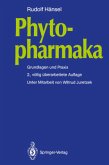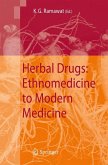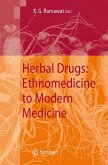This book is the first volume of a series on the adverse effects of herbal drugs. We begin this series not because we are opposed to phytotherapy, or because we want to share our ammunition with adversaries of herbal drug treatments. We realize that several remedies of natural origin (e. g. , senna, ipecac) have retained a prominent place in the conventional drug armamentarium. We also recognize that the general public appreciates so-called mildly acting herbs for self-medication purposes. We acknowledge that even when such herbs have no pronounced pharmacological acti vity, their psychosocial effect remains an asset that should not be ignored. Moreover, we do not hold the often heard opinion that traditional remedies are nothing but a collection of worthless relics from the remote past which cannot possibly be relevant for modem medicine. We consider this an erroneous assumption thas has been refuted repeatedly by experimental research on traditional botanicals. The encouraging results with the herbal remedy feverfew as a prophylactic antimigraine agent is a recent illustration that botanical medicine can still provide exciting the rapeutic discoveries. For these reasons it is not our intention to place botanical remedies indiscriminately in an unfavorable light. We do not seek to dam up the "green" wave that is sweeping over our society. We do consider it important, however, that this wave be appropria tely chanelled, and with this basic attitude we have assumed edi torial responsibility.
Hinweis: Dieser Artikel kann nur an eine deutsche Lieferadresse ausgeliefert werden.
Hinweis: Dieser Artikel kann nur an eine deutsche Lieferadresse ausgeliefert werden.








